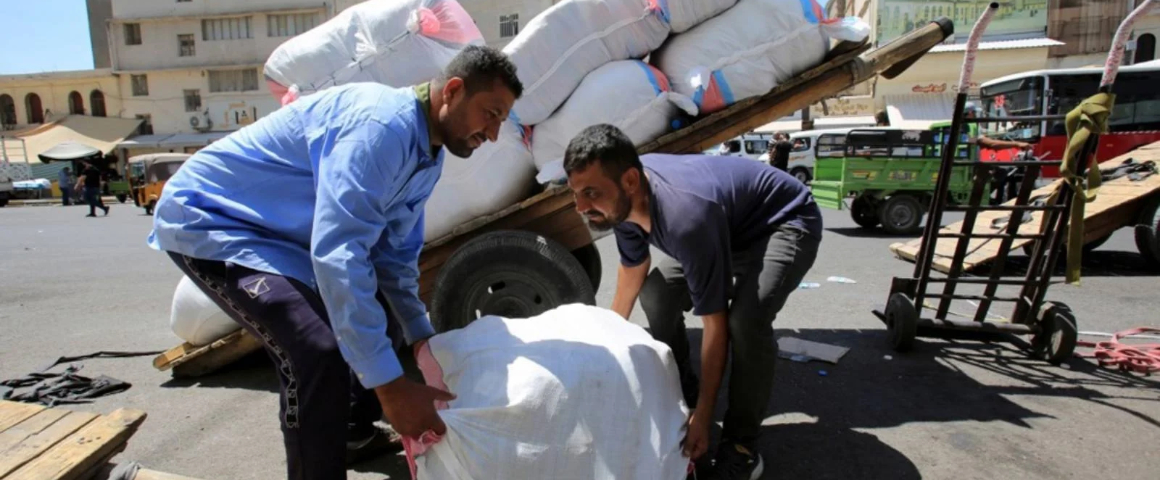By Karzan Aziz Mahmood
The 2024 film The Goat Life is a survival drama based on the harrowing real-life story of a Malayali immigrant laborer in the Gulf. It is a profound film, but many people believe the story is fictitious and merely depicts cinematic fabrications. The following article is an effort to illuminate the true conditions of foreign workers. I share this story in the hope of shedding light on the untold suffering of countless others, and to challenge the ongoing injustices that mirror those in The Goat Life.
My wife Dashne and I are long-time advocates for human and workers’ rights, especially for foreign workers. In 2019, an international labour activist reached out to us from outside Kurdistan, with an urgent message: “A foreign worker in Kurdistan has informed me about their perilous conditions regarding work safety, insufficient nutritious food, traffic ban, lack of health services and poor treatment.” He provided contact information for the foreign workers, and we promptly contacted the number, eager to meet and assist them.
After establishing initial contact, they provided us with an address in a discreet neighbourhood where we could meet. Upon arrival, we found two foreign workers waiting apprehensively under the shade of a house, as if engaging in the most clandestine activity imaginable. Their eyes, filled with hesitation and fear, barely met ours. They were young men, around 28 years old.
They spoke to us in words laden with fear and trepidation, constantly scanning the surroundings to see if anyone was watching or if this meeting was a trap. Already familiar with parts of their story, we needed them to confide in us as much as they could, so that we might help them effectively. They shared some details, but it was evident that there was much more which they were too frightened to disclose.
We noticed a girl leaning out of a window from the second floor of an adjacent apartment, discreetly filming and photographing us with her cell phone. It quickly became clear that she was documenting the meeting for the safety of her friends. We later learned that she immediately sent a picture of us to the labour activist, who reassured her that we were indeed the ones he had sent and that she need not fear.
We soon obtained contact information for several people, including lawyers and friends, as well as a local “labour organization” in Kurdistan that could offer assistance. Over the next few days, we acquired the full name of the company, the names of the owner and the manager, and the location of the company premises. We arranged a meeting at the factory, located in a remote area on the outskirts of Sulaimani, which was to include the company manager, the two workers, Dashne, an interpreter and the director of the labour organization.
At the meeting, once the workers understood our sincere intentions and realized we were not going to relent, they presented their issues with great confidence. Their complaints included poor living conditions, inadequate food, restrictions on travel outside the factory without a compelling excuse, low wages, confiscation of passports, and dangerous working conditions.
During the meeting, there were two occasions during which the workers’ interests were betrayed. The first came when it was revealed that the interpreter was translating in a manner favourable to the employer. Dashne asked him to stop and took over the translation duties herself.
A second and greater betrayal occurred as the employer dismissed the workers’ legitimate grievances and the confrontation escalated, and the director of the so-called labour organization turned his back on the workers and sided with the employer. This caused the workers to feel frightened once again.
To verify the rumors circulated by the company manager, Dashne suggested they tour the factory to see the truth firsthand. The reality was even more dire than the workers had described. For example, just a few nights before, one of the workers had been stung by a scorpion and almost died because there were no health services available in the factory and he was not permitted to leave for medical care.
Once the truth was laid bare, Dashne harshly criticized the conditions and demanded immediate changes, pointing to potential media exposure and legal action. At that point the factory manager became defensive and threatened her, questioning her authority and motives and accusing her of hindering the factory’s profitability. Dashne responded by asserting that if profit meant exploiting workers like slaves, we would not stand by and allow such inhuman practices to continue.
The discussions and confrontations with the company stretched over more than a week, yet no conclusive agreements were reached as the company was reluctant to fulfill their demands. Instead, the threats against us intensified. The workers, feeling increasingly endangered, demanded the return of their passports so they could quickly return home. It appeared that they had resolved that returning to their dreams of Africa and their colonized homelands was preferable to the slavery imposed upon them by Iraqi and Kurdish companies.
Having become clear that there was no other option, we prepared a report in both Kurdish and English, warning the company that if they did not meet the workers’ demands, we would publicize their plight in local and international media. That was when we received several more threats, directly and indirectly. The company manager, through the president of the aforementioned labour union, warned us to abandon the case as the owner of the company was a significant official who would not tolerate our stance. On another occasion, a student interrupted one of my classes, summoning me to the door to give a warning on behalf of that official and advising me to withdraw from the case. I immediately replied that we would pursue legal action as soon as possible, and the student ominously informed me that the court was under the influence of his patron and that our efforts would be fruitless.
We soon found a volunteer lawyer willing to defend the workers and pursue their case. We were on the verge of taking the case to court when the threats became unbearable. One morning, the two workers contacted us to say that they were no longer allowed to seek hospital care and were being coerced into recanting their willingness to appear in court. Despite being closely monitored within the factory, having their mobile phones confiscated and their private communications invaded, they reached out to us in desperation.
Later that same day, after obtaining their consent, we drove to the factory and rescued the two workers from the looming threats and pressures, at least until the trial could commence. They had been hiding among other workers who, following this incident, gradually saw the factory manager responding to their demands with increasing flexibility and allowing them to voice their complaints and refrain from publishing the reports. It was immensely gratifying to secure the return of their passports within about two months, fulfilling not only their requests but also addressing some concerns of the other workers. After regaining their passports, one of the workers returned to Cameroon and the other changed his employment, though both eventually returned to their home countries.
This is only a brief segment of a story in which we were involved, and it is a narrative which unfortunately highlights our role more than we would like. But it reflects the broader story of hundreds of millions of other workers who are treated like mere chattel.
Imagine arriving in an unknown region and, from the moment you step off the plane, being shuffled from one company to another until you find yourself under the dominion of a senior military official, a high-ranking party official, or a callous, profit-driven company owner. You are subjected to substandard living conditions, poor food, racist and inhuman treatment, confiscation of passports, restrictions on movement, exposure to toxins and physical harm, language barriers that prevent communication with fellow workers, death threats and myriad other forms of suffering and oppression.
Our story is not just a reflection of one incident, but a call to action against the systemic exploitation of foreign workers in Iraq and the surrounding regions.
Karzan Aziz Mahmood a writer, translator, researcher, journalist and advocate for human rights from Iraq, Kurdistan.
[Photo: Free Malaysia Today]
Support working-class media!
If you found this article useful, please consider donating to People’s Voice or purchasing a subscription so that you get every issue of Canada’s leading socialist publication delivered to your door or inbox!
For over 100 years, we have been 100% reader-supported, with no corporate or government funding.




